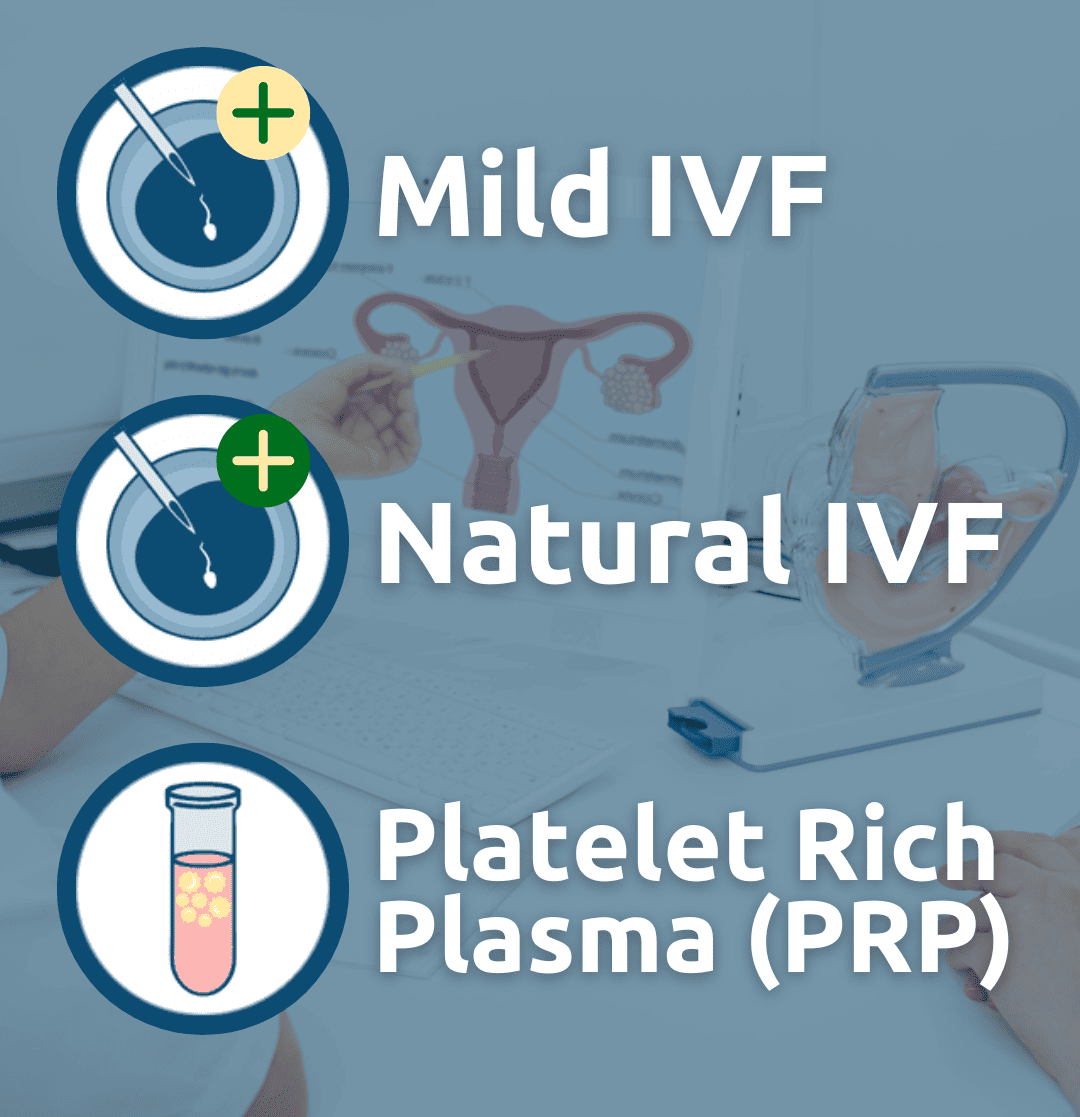Fertility Decreases with Age
How is Diminished Ovarian Reserve Diagnosed?
Diagnosing Diminished Ovarian Reserve involves a comprehensive assessment of a woman’s ovarian function and egg supply. If you have not already been diagnosed with DOR, our experienced medical team at Generation Next Fertility employs several methods to accurately diagnose DOR through a comprehensive medical profile.
Diagnosing DOR involves reading the levels of key hormones like follicle-stimulating hormone (FSH), luteinizing hormone (LH), and anti-Müllerian hormone (AMH). Elevated FSH levels and lower AMH levels can indicate diminished ovarian reserve.
Through ultrasound imaging, we count the number of small follicles in the ovaries, known as antral follicles. A lower count may suggest reduced ovarian reserve.
An irregular menstrual cycle or early menopause can provide additional clues to potential DOR. While age alone isn’t a diagnostic criterion, it’s an important factor. As women age, their ovarian reserve naturally declines.

What treatment options are available for DOR?

Mild IVF is an approach that aims to collect a smaller number of high-quality eggs by using lower doses of fertility medications. The goal is to stimulate the ovaries just enough to produce a few eggs, focusing on their quality rather than quantity.
Natural IVF involves collecting the single egg that the ovaries naturally release during the menstrual cycle. The collected egg is then fertilized with sperm in the laboratory. This approach is suitable for individuals who prefer a more minimalistic treatment or those who have a very limited ovarian reserve.
Platelet-Rich Plasma (PRP) therapy is a medical procedure that involves using a patient’s own blood plasma, which is rich in platelets and growth factors, to potentially improve tissue healing and regeneration. In the context of fertility, PRP therapy might be used to support the health of the ovaries and improve ovarian function.
Generation Next Fertility is currently in our Open Enrollment stage of our PRP Study. This is a first-of-its-kind clinical research study for women 35-42 with DOR. In our preliminary data, we’ve found that the probability of having a chromosomally normal embryo to have future transfer and implantation for a higher chance of pregnancy has tripled through the use of PRP.

